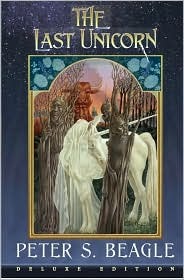"Oh, 'twould be marvelous if the world and its moral questions were like some game board, with plain black players and white, and fixed rules, and nary a shade of grey."
war is hell. hell is other people. other people are other people. other people have their problems. i have my own problems. my people are my people. their goals are my goals. we do what we can. we fight in a war. war is a business. war is our business.
The Black Company is a mercenary outfit. they are from the South; they currently work in the North. they fight for the Lady. they fight against the Rebel. they fight against the Lady. they fight for the White Rose. they fight for the Lady again. they fight for evil, they fight for good. they fight for who pays them. they fight against those who are against them. they do terrible things. they do some good things too.
 Glen Cook was in the military. he understands what could be called the military mindset, i suppose. his characters feel completely real. they feel like real soldiers. they are cynical; they follow orders; their first loyalty is to each other. Cook writes in choppy, abrupt, stripped down prose, like a journalist writing on-the-spot field reports. his prose is not rich or lyrical, it does not glow, it does not leap off of the page. his characters have names like "Croaker" and "Darling" and "Shed" and "One-Eye". his cities have names like "Rust" and "Oar" and "Opal" and "Roses". there is a crude poetry to his prose. it is perfectly suited to what this series is trying to accomplish.
Glen Cook was in the military. he understands what could be called the military mindset, i suppose. his characters feel completely real. they feel like real soldiers. they are cynical; they follow orders; their first loyalty is to each other. Cook writes in choppy, abrupt, stripped down prose, like a journalist writing on-the-spot field reports. his prose is not rich or lyrical, it does not glow, it does not leap off of the page. his characters have names like "Croaker" and "Darling" and "Shed" and "One-Eye". his cities have names like "Rust" and "Oar" and "Opal" and "Roses". there is a crude poetry to his prose. it is perfectly suited to what this series is trying to accomplish.i read some reviews of this series before writing this review. a regular complaint is the lack of beauty in Cook's naming of people and places; a certain lack of fantastickal whimsy or majesty in the writing itself. SWOOSH, you are missing the point. The Black Company series is indeed pure fantasy - it contains magic and monsters and wizards and epic battles involving magic, monsters, and wizards. and yet its goal appears to be to reduce all the lavish world-building and all of the lustrous magic within those fantasy elements in service of making something that actually feels real. something that feels dark and dirty, and yet because of that dark dirtiness, something that also feels alive and warm. Cook does not write with a flair for microscopic detail; he does not envision his characters as having larger-than-life personalities or operatically tragic narrative trajectories. he is not George RR Martin. nor does Cook write with snarky, sizzling wit or an eye for the cinematic action sequence or a need to surprise the reader with various malevolent sucker punches. he is not Joe Abercrombie. he writes from a ground-eye view, from a working man's perspective, through the eyes of people who are neither all good nor all bad, but who are just trying to do what they can with what they have been given. they want to get paid, they do not hunger for danger, they want to make their lives a little better. so when the realization dawns that these disreputable, shady, completely fallible characters are trying to accomplish some good with what little they have available... well, it is a beautiful thing. if shades of grey can be considered a beautiful thing.
and he doesn't just do this for his soldiers. the third book portrays a powerful god-tree as a being who is just trying to do a job that needs to be done. he's grumpy about it. he is not particularly sympathetic to other people's problems. he's a good guy, apparently - but a disinterested one. after all, he has to focus on his own work. the series also features a rather loathsome innkeeper and various malevolent sorcerers and tyrants. they get the same treatment... after all, who is a villain in their own mind? the eventual realization that a loathsome innkeeper and a terrible sorceress-tyrant are also trying to do what little good they can accomplish comes slowly and is mapped out carefully, hints dropped nonchalantly, an accumulation of evidence. Cook does not push this revelation on the reader... it just is what it is. and so characters like Shed the Innkeeper and the tyrant known as the Lady - much like soldiers with names like Elmo and Croaker and the Captain and the Lieutenant - become real in a way that i have seldom seen accomplished in other works of fantasy.
great job, Cook. no wonder your series is such a cult classic.
although i think the first novel in the series is clearly the strongest, the entire trilogy is certainly a worthy experience. if you are in the right mindset, if military fantasy doesn't bother your more progressive sentiments, if you actually don't need things like sentiment in your fantasy.




